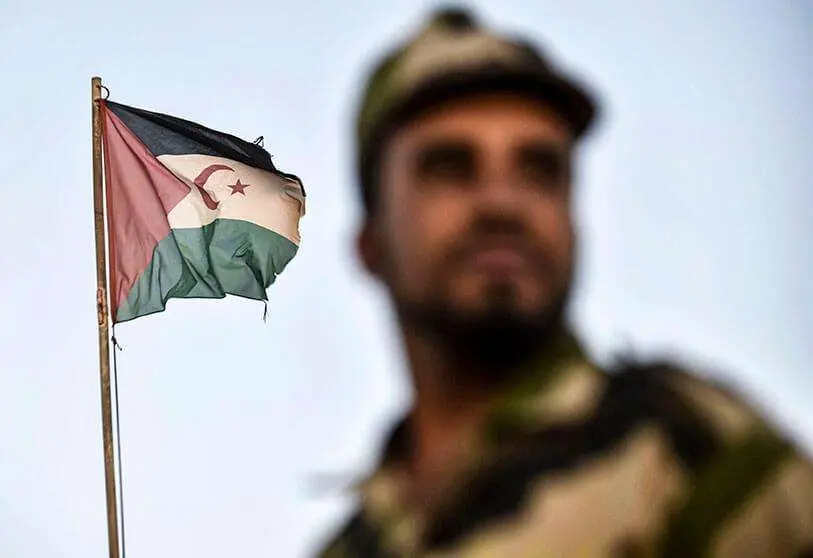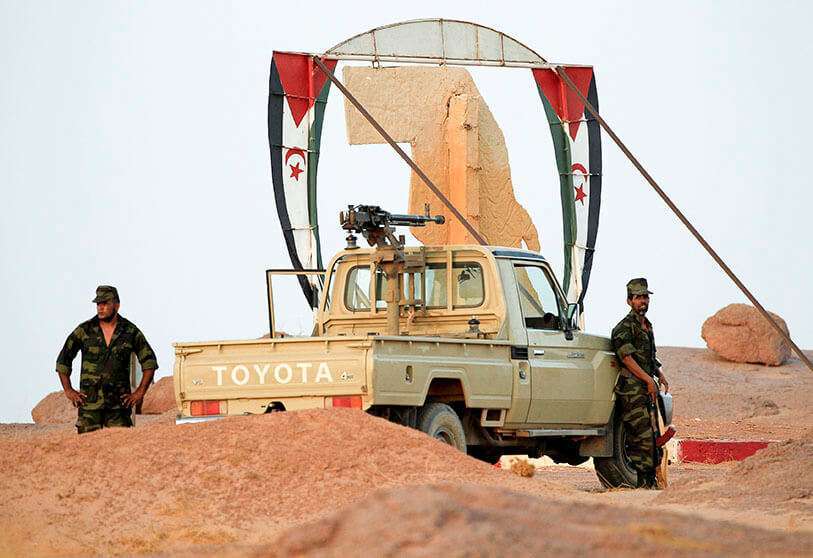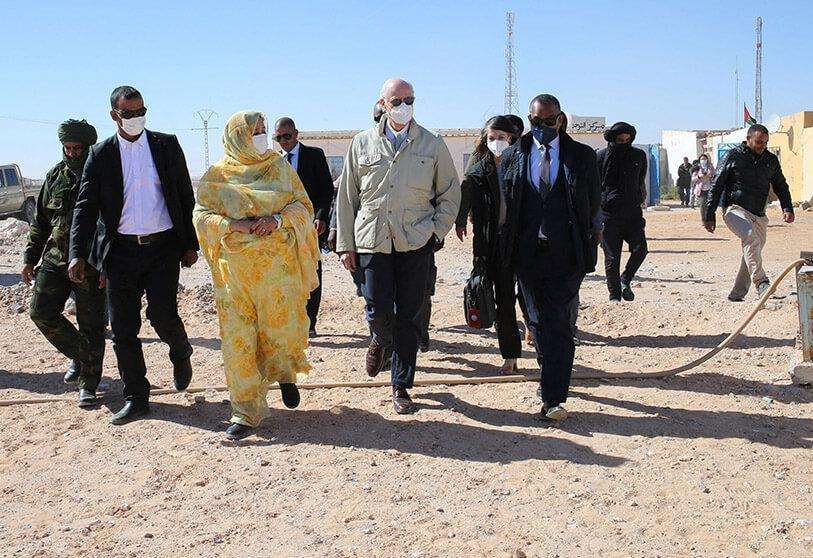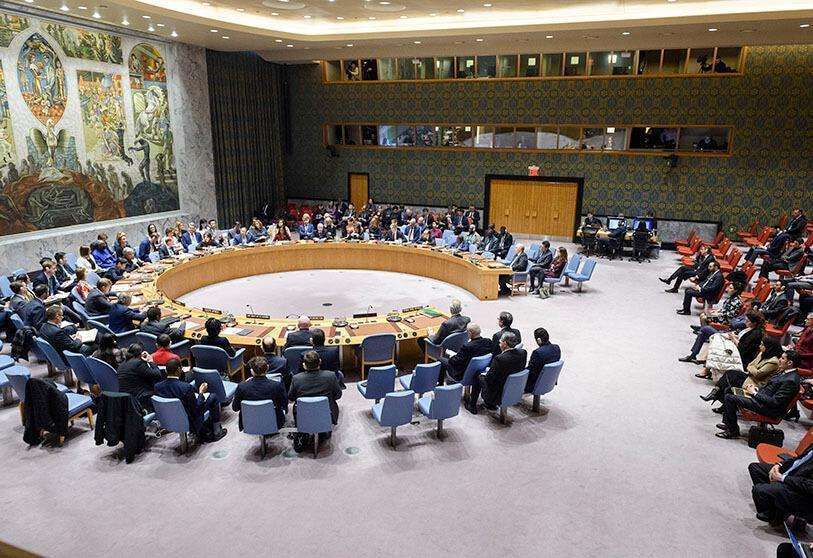Divisions within the Polisario Front over possible return to ceasefire with Morocco

Some Polisario Front leaders do not agree on the possibility of resuming the armed conflict between them and Morocco over the question of Western Sahara.
The Polisario Front leadership considers the ceasefire with Morocco to have been broken in November 2020 because of the clashes that took place in the Guerguerat pass, the zone of détente agreed between the parties, after 30 years of cessation of armed activity that came from the agreements signed in 1991, which pacified the situation after the bloody confrontation between the opposing sides since the departure of Spain as a result of the decolonisation process of the territory.
Oubi Bachir, the Polisario representative in Europe, is considering the possibility of returning to a ceasefire "provided there is a real political will to resolve the conflict, instead of managing it", as he indicated in an interview granted to the Tunisian media Al-Mustaquilla, echoed by the Yabiladi media and the Sahara Press Service news agency, linked to the Polisario Front and the Sahrawi Arab Democratic Republic (SADR), which it represents.
This line is not the one defended by another important Polisario Front official based in New York, Ammar Mohamed, one of the spokesmen for the most immobilist line of the Polisario Front and who embodies the most direct confrontation with Morocco. "There will be no complete ceasefire on the part of the Saharawis as long as there is an occupying force in the territory. The Saharawi movement remains firmly faithful to its declaration of armed struggle, widely supported during the 16th congress held in mid-January in Dakhla camp", he told RASDTV.

Ammar Mohamed himself has already shown a very inflexible line on the occasion of the visit of Staffan de Mistura, special envoy of the UN Secretary General for Western Sahara, to the refugee camps in Tindouf, where the UN representative was able to see the difficult living conditions of the refugees in these settlements located in Algeria. "The Polisario no longer considers the referendum on self-determination as a possible solution, but clings directly to its legitimate right to full independence for Western Sahara. The Saharawi people maintain their right to defend themselves by all legitimate means", the Polisario official stressed to the media.
This position of Ammar Mohamed was opposed to that expressed by the spokesman of the Polisario Front in Algeria, Abdelkader Taleb Omar, who had pronounced himself in favour of "a political solution based on the organisation of a referendum as a compromise solution". "The organisation of a referendum would probably solve all the problems", this spokesman indicated, as the media outlet Jabiladi recalled.
The breakdown of the ceasefire in 2020 put a temporary end to the hopes placed in the negotiation process to reach a solution to the Western Sahara dispute, which has lasted for more than four decades after Spain's departure as the colonising power from the area. Despite various mediations throughout history and the intervention of the UN, the confrontation continues

Morocco proposes a formula of broad autonomy for Western Sahara under Moroccan sovereignty, respecting the UN resolutions, which has significant international backing from relevant countries such as the United States, Germany, the United Arab Emirates and Spain itself. They consider the North African nation's initiative to be the "most serious, credible and realistic" way of resolving the problem.
On the other hand, the Polisario Front generally advocates holding a referendum on independence, which is difficult to achieve, as several experts have pointed out, given the problems with the census and other factors, and which has less support, including that of Algeria, Morocco's great political rival in the Maghreb. Although, as has been noted, there are some Polisario representatives such as Ammar Mohamed who directly call for a direct independence process beyond holding a referendum beforehand, as pointed out by the media outlet Yabiladi, thus opposing more moderate and less rupturist proposals.

UN envoy Staffan de Mistura held bilateral meetings with Morocco and the Polisario Front and other parties involved in the issue in early April and briefed UN Secretary General António Guterres on developments and results ahead of the next UN Security Council meeting to address the Western Sahara issue. De Mistura scheduled informal bilateral consultations with representatives of Algeria, Mauritania and members of the "Group of Friends", including Spain, the United States, Russia, the United Kingdom and France. In other words, with all parties that have a stake in the Saharawi issue. The UN Secretary General, António Guterres, received Staffan de Mistura to discuss the results of the "informal and bilateral consultations" held by De Mistura, according to the UN Department of Political and Peacebuilding Affairs (DPPA) and as confirmed by media such as Morocco World News quoting this source.
In the closed-door meeting with the UN Secretary General, De Mistura informed Guterres of the "informal and bilateral consultations" held with all parties involved in the Sahara conflict, according to various media reports referring to the DPPA. De Mistura held bilateral talks with delegations from Morocco, the Polisario Front, Algeria and Mauritania, as well as France, the Russian Federation, Spain, the United Kingdom and the United States with the aim of bringing positions closer together and relaunching the political process of pacification in the region.

A meeting (scheduled by Russia, which holds the presidency of the UN Security Council) is scheduled for April to discuss the Western Sahara issue. The 15 members of the Security Council will address the issue on 19 April in a briefing session in which the Special Envoy, Staffan de Mistura, will also participate. He will present a report on his recent visits to Saharawi territory and on the meetings held with the different parties involved in the conflict.








